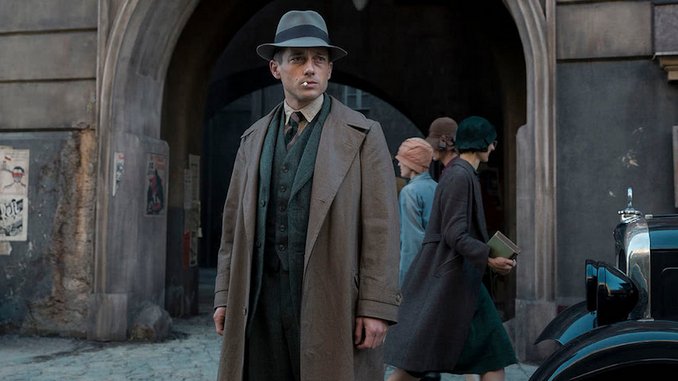TV Rewind: Babylon Berlin Is TV’s Greatest Hidden Treasure
Photo Courtesy of Netflix
Editor’s Note: Welcome to our TV Rewind column! The Paste writers are diving into the streaming catalogue to discuss some of our favorite classic series as well as great shows we’re watching for the first time. Come relive your TV past with us, or discover what should be your next binge watch below:
![]()
Usually to be considered as a TV Rewind subject, a series we’re reminiscing about or catching up on needs to have aired no sooner than the previous year. But I’m giving a pass to the excellent Babylon Berlin because mostly it aired in 2017, and only recently popped back in for another installment on Netflix. It’s also getting a pass because yes, I just discovered it, and frankly we all need to be watching and talking about Babylon Berlin. It’s astonishing to me how rapidly the show went from being a niche title I saw occasionally mentioned on Twitter to a series I cannot stop thinking about. I’ve considered devoting my career to the way one character says “gud.” This is the spell that Babylon Berlin casts—slowly at first, and then with the roar of a train engine at full tilt—over the course of three marvelous seasons (with hopefully more to come).
The series is both an intuitive watch and occasionally a difficult one in this particular political moment. As someone who gets too much of her historical knowledge from television, I’ve also found Babylon Berlin to be particularly illuminating about the forces at play in German society in the late 1920s and early 1930s. It was, by all accounts, not dissimilar to America—although German denizens were haunted (of course) by the horrors of World War I, and more intricately linked to the rise of both communist and fascist factions across Europe.
All of these macro topics are given human stories for us to become deeply involved with, although the show’s primary duo exist in their own intimate, complicated emotional worlds. Gereon Rath (Volker Bruch) is a detective from Cologne who shows up in Berlin’s vice squad with his own secret agenda, and who is self-medicating his PTSD with morphine and psychotherapy. He soon meets Charlotte (Liv Lisa Fries), a cunning young flapper with ambitions to become the department’s first female inspector, while looking to escape her family’s poverty and cycle of abuses. From the start, Babylon Berlin is a complex work that introduces us to a myriad of characters with various allegiances and backgrounds, all coalescing at a place and a time that is about to set the world ablaze.
And yet, the series is not really focused on the rise of far-right radicals, at least to start. True to life, it mostly happens in the background, in spurts, until it slowly moves out into the open and begins to take over. We don’t see a swastika until the penultimate episode of Season 2. Season 3 deals more overtly with the integration of the Nazi party—still largely seen as goons by society—into the fringes of government alongside the arrest or disappearance of political dissidents, but it isn’t until the stock market collapse of 1929 that they really get the opportunity to seize power. And yet, revelations like party members infiltrating communist protests to incite violence and turn public opinion against the left feels uncomfortably relatable.
In its first two seasons, the show is marvelously concerned with the contents of a train car filled with Russian gold, which two nations and at least four political movements are trying to get their hands on. The noir beginnings—including an odyssey into vintage pornography—introduce a number of warring factions, heroes, and villains, with more than a few surprises in terms of allegiance. But this is a show that is also particularly inclusive regarding its depictions of sex workers, a burgeoning queer community, and even the Deaf in casual yet potent ways. It shows how easily, truly, it should be for series to present characters whose lives contain multitudes. Because in doing so, we as viewers respond to the depth and nuance in ways that make our relationships with them feel fully involved.
-

-

-

-

-

-

-

-

-

-

-

-

-

-

-

-

-

-

-

-

-

-

-

-

-

-

-

-

-

-

-

-

-

-

-

-

-

-

-

-








































